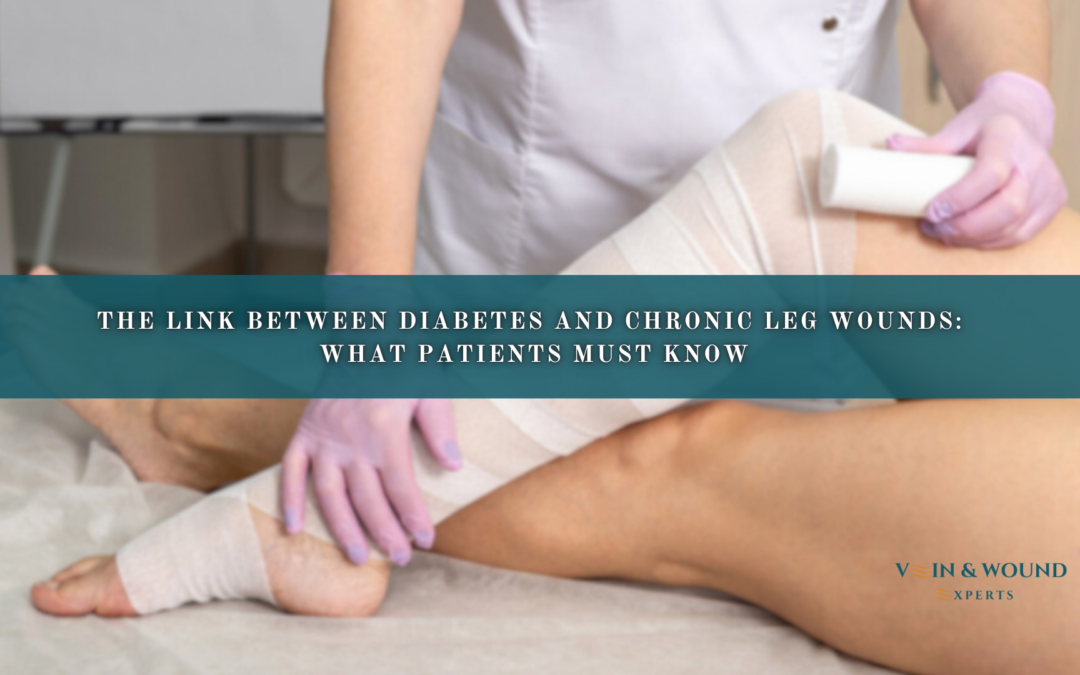Diabetes and Chronic Leg Wounds Connection
🩺 Why a Vein Clinic Plays a Role in Diabetic Wound Care
Diabetes affects nearly every system in the body, but its impact on circulation is especially concerning. Elevated blood sugar levels damage blood vessels over time, reducing blood flow to the legs and feet. This makes wounds slower to heal, creating the risk of chronic ulcers. A trusted vein clinic provides essential evaluations for patients whose diabetes has already compromised their vascular health.
Poor circulation prevents oxygen and nutrients from reaching damaged tissue. Even small cuts can develop into large, non-healing wounds when veins and arteries no longer function efficiently. Left untreated, these wounds can lead to infections, long-term disability, and even amputation.
🌿 The Importance of Professional Vein Treatment for Diabetic Patients
Patients with diabetes often require targeted care beyond general wound management. Advanced vein treatment helps improve circulation, reduce swelling, and promote faster recovery of chronic leg wounds. Techniques may include minimally invasive procedures to restore vein function, combined with compression therapy and wound care strategies.
For diabetic patients, this specialized approach is not cosmetic but lifesaving. Healthy venous function is critical to keeping wounds from turning into severe complications. Clinical experts emphasize that even patients who monitor their blood sugar closely may face wound healing challenges if their veins are already weakened by years of diabetes.
💨 How Diabetes Slows the Healing of Chronic Leg Wounds
The healing process requires steady blood flow, immune cell activity, and collagen production. Diabetes interferes with each of these mechanisms:
1️⃣ High blood sugar impairs white blood cells, weakening the body’s defense against infection.
2️⃣ Damage to small blood vessels reduces oxygen delivery to wound sites.
3️⃣ Neuropathy from diabetes often prevents patients from noticing minor injuries until they become severe.
These combined factors explain why chronic wounds are one of the most common and dangerous complications of diabetes. Without timely care, they may persist for months, causing pain, mobility problems, and an increased risk of hospitalization.
🏥 Integrated Care for Patients with Diabetes and Vein Disorders
Effective management of chronic leg wounds requires a multidisciplinary approach. Alongside diabetes control, addressing venous health is crucial. Specialists often recommend:
-
Comprehensive vascular imaging to assess circulation
-
Personalized treatment plans focused on wound closure and vein support
-
Long-term prevention strategies to avoid recurrence
At Vein & Wound Experts in Downey, California, physicians combine advanced vein care with wound healing expertise. This integrated model provides patients with both immediate relief and long-term protection against further complications.
🌎 Why Localized Vein Care Matters for Long-Term Healing
Chronic wounds are not just a medical issue; they affect a patient’s quality of life, independence, and mental health. For residents of California managing diabetes, access to modern vascular therapies can make the difference between recovery and chronic disability.
By addressing the diabetes and chronic leg wounds connection through vein-focused care, patients reduce healing time, avoid infections, and regain mobility. With proper medical support, individuals can manage their condition more effectively and prevent wounds from returning.

Andy Sharifi
Position
